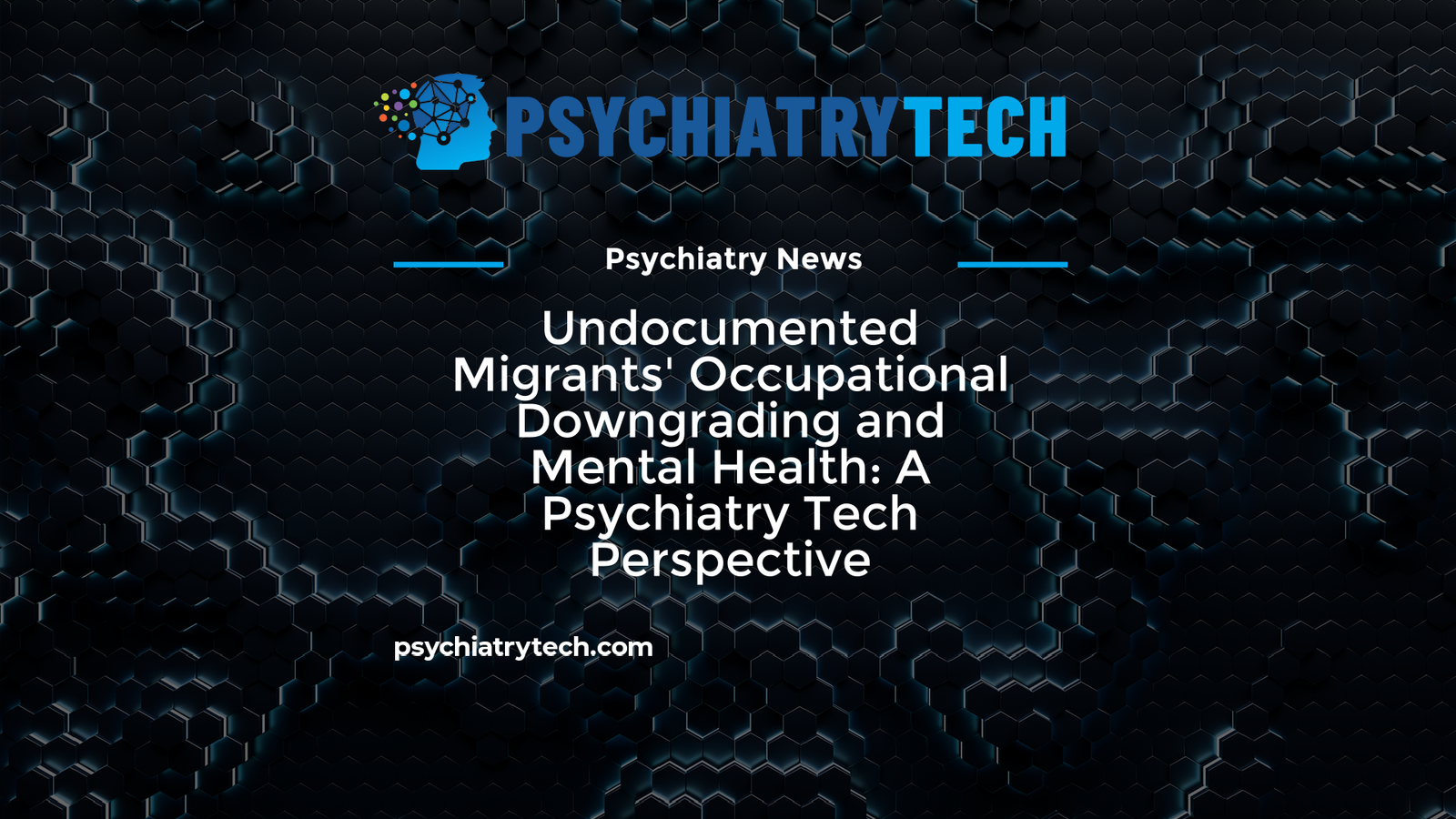Undocumented Migrants’ Occupational Downgrading and Mental Health: A Psychiatry Tech Perspective
The occupational downgrading experienced by undocumented migrants –digital immigrants referenced, increases their risks of mental health problems, including depression and anxiety. This article delves deeper into this issue from a psychiatric tech perspective.
Occupational Downgrading and Its Impact
Occupational downgrading refers to the predicament where skilled professionals take on jobs that are below their qualifications due to immigration status or other factors. This experience is not uncommon among undocumented migrants, where they are more likely to carry out manual work that may not recognize or utilize their existing skills and education.

Discover The World's MOST COMPREHENSIVE Mental Health Assessment Platform
Efficiently assess your patients for 80+ possible conditions with a single dynamic, intuitive mental health assessment. As low as $12 per patient per year.
Besides leading to economic hardships, occupational downgrading also increases the risks for mental health problems. Research suggests that depression and anxiety are among the most common mental health problems experienced by individuals living and working in degrading conditions.
The Role of Psychiatry Tech in Supporting Mental Health
From a psychiatry tech perspective, technological innovations have made significant strides in the mental health industry. These include telepsychiatry, digital therapy platforms, and AI-powered mental health apps.
Telepsychiatry or remote therapy can be instrumental in providing mental health support to undocumented migrants experiencing mental health issues due to occupational downgrading. With this technology, psychiatric professionals can render therapeutic services remotely, reaching individuals who may otherwise lack access due to geographical, financial, or immigration-related reasons.
Furthermore, digital therapy platforms can facilitate self-guided psychotherapy, enabling users to access therapeutic content at their own choosing. These platforms can help undocumented migrants manage symptoms of depression and anxiety at their own pace, breaking down barriers of accessibility.
Lastly, AI-powered mental health apps provide another layer of assistance.With algorithms designed to recognize patterns of psychological distress, these apps can potentially identify undocumented migrants at risk of mental health concerns and prompt appropriate interventions.
Advocacy for Improved Conditions and Access to Support
While Psychiatry Tech can help address mental health concerns among undocumented migrants, it’s vital to underscore the importance of advocacy for improved working conditions and access to mental health support. Improving workplace conditions and equality in access to opportunities can help mitigate the adverse mental health consequences of occupational downgrading.
Furthermore, implementing comprehensive mental health screening programs within workplaces could help identify those at risk and guide them towards appropriate interventions and therapeutic measures.
Conclusion
Undoubtedly, occupational downgrading poses profound mental health risks among undocumented migrants. While Psychiatry Tech advancements provide promising avenues for support, it is crucial that equal focus is directed towards improving workplace conditions and ensuring that everyone, regardless of immigration status, has access to the mental health support they need.
We encourage you to share your insights on this topic. How can Psychiatry Tech advancements be utilized more effectively in addressing the mental health needs of undocumented migrants dealing with occupational downgrading? Please share this post on your social media platforms to bring awareness to this significant issue.

